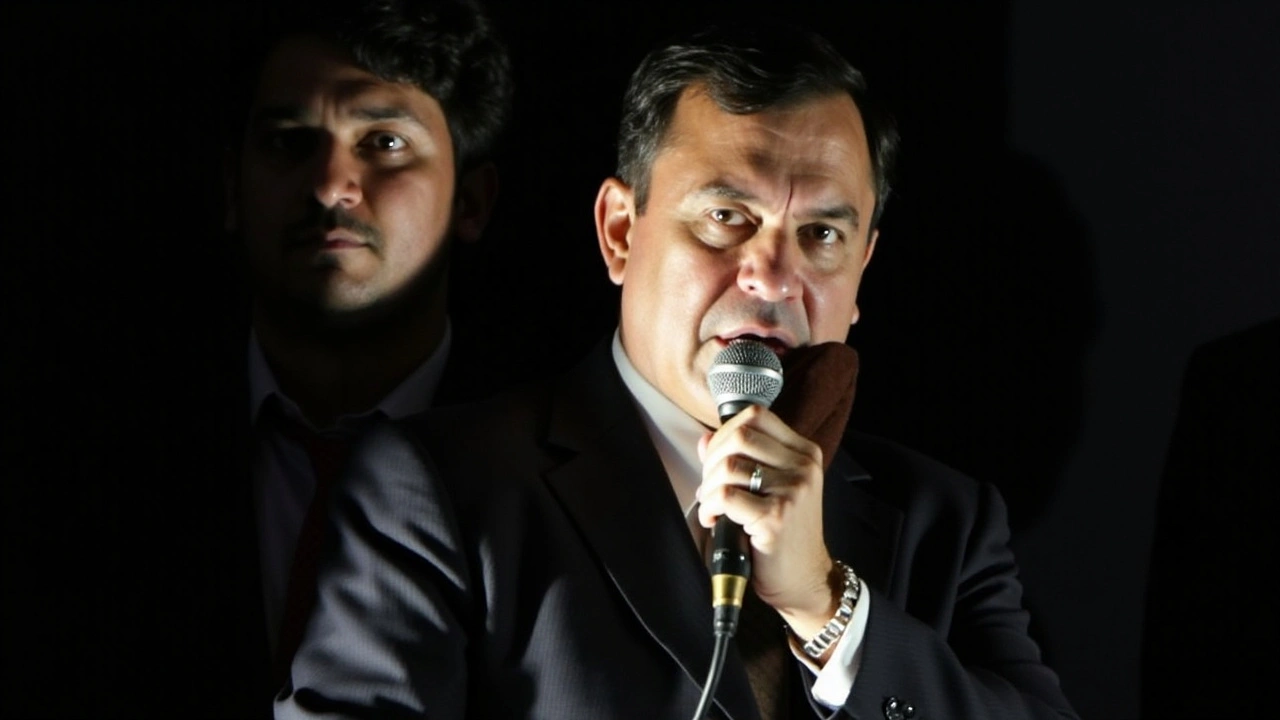
Shigeru Ishiba's Journey: From Defense Enthusiast to Prime Minister
Shigeru Ishiba, Japan's Train-loving Prime Minister, is renowned not only for his political acumen but also for his deep admiration for Japan's railways and his expertise in defense policies. Recently, however, his political journey hit a rough patch following a significant electoral setback. Ishiba, who assumed office on October 1 after succeeding Fumio Kishida, was initially seen as a fresh face capable of steering Japan towards renewed trust in governance. Yet, his leadership abilities came into question as the recent general election results rolled in. This setback is not just a personal blow to Ishiba but a signal of shifting political landscapes in Japan.
Despite expressing intentions to reform the Liberal Democratic Party (LDP) and setting a new course for the nation's future, Ishiba’s leadership failed to galvanize the support it desperately needed. He had hoped to rejuvenate the LDP’s image and distance it from a series of scandals that had marred its reputation, but the electorate remained skeptical. The backdrop of his political career is no stranger to hurdles; Ishiba had vied for leadership of the LDP multiple times previously, including a notable confrontation with his rival, Shinzo Abe, in 2012. Yet, throughout his political odyssey, Ishiba has maintained his individualistic approach, advocating for policies that sometimes set him apart from mainstream party lines.
Election Night Shock: LDP's Unexpected Shortfall of Seats
The election results delivered a stark wake-up call to Ishiba and the LDP. The party, along with its coalition ally Komeito, managed to secure just 215 out of the available 465 seats in the House of Representatives. This represented a marked decline from their previous standing, and was the first occasion since 2009 that the coalition had lost majority control—a reflection not just of internal party challenges but broader national discontent. The results were an undeniable affirmation of the electorate's desire for change as well as punishment for past indiscretions related to party scandals involving slush funds and questionable ties to a religious organization.
The political climate has been fraught with an undercurrent of dissatisfaction, as Japanese citizens voiced concerns over economic disparities and rising inflation. The LDP, long seen as a titan of stability, found itself on the defensive amidst accusations of financial mismanagement and unmet promises. Ishiba’s campaign rhetoric was strong—promises of transparency and reforms—but ultimately it did not translate into electoral success. The electorate's message was clear: assurances alone are insufficient; concrete action and accountability are demanded.
Constitutional Democratic Party's Surge and Internal Party Repercussions
A key development was the surge in support for the opposition, the Constitutional Democratic Party of Japan (CDP), which managed to increase its seat count significantly, from 98 to 148. This rise signaled a shift in public sentiment, potentially indicating voter fatigue with LDP's prolonged dominance and a hunger for alternatives. Shinjiro Koizumi, the LDP's election strategy chief, being acutely aware of the political implications, resigned, taking responsibility for the dismal performance.
Inside the LDP, there is surely to be intense introspection and discussions on strategy moving forward. Ishiba, amidst calls for change, is poised to lead from the front, recognizing the critical need to bridge the gap between party promises and deliverables. He has proposed incorporating policy initiatives from opposition members, acknowledging that mutual cooperation may be indispensable in reinvigorating the party’s image. Although his support for altering the party's stance on certain socio-political issues, such as the controversial stance on married couples' surnames or the composition of his cabinet, might have contributed to a dip in his ratings, they illustrate the challenges of balancing progressive reform with party orthodoxy.
The Path Forward: Reforms, Challenges, and Hope
Ishiba remains resolute in his position, emphasizing the importance of refraining from a "political vacuum" which could destabilize the government further. Despite the setback, Ishiba has been quick to voice his commitment to addressing Japan's pressing economic issues and security threats, signaling a willingness to recalibrate his strategies to align with national interests more effectively. He must navigate a path riddled with economic challenges, such as the ongoing debate on the Bank of Japan’s monetary policies, and the delicate balance of international relations amid regional geopolitical tensions.
The journey ahead for Shigeru Ishiba is one of reflection and recalibration. The political landscape in Japan is evolving, and with it, the demands and expectations of the electorate. While the recent election results might have momentarily derailed his aspirations, the path forward can still pave the way for meaningful reforms. With the right blend of introspective assessment and strategic outreach, Ishiba has the potential to guide Japan through this tumultuous phase, restoring both voter confidence and political stability.